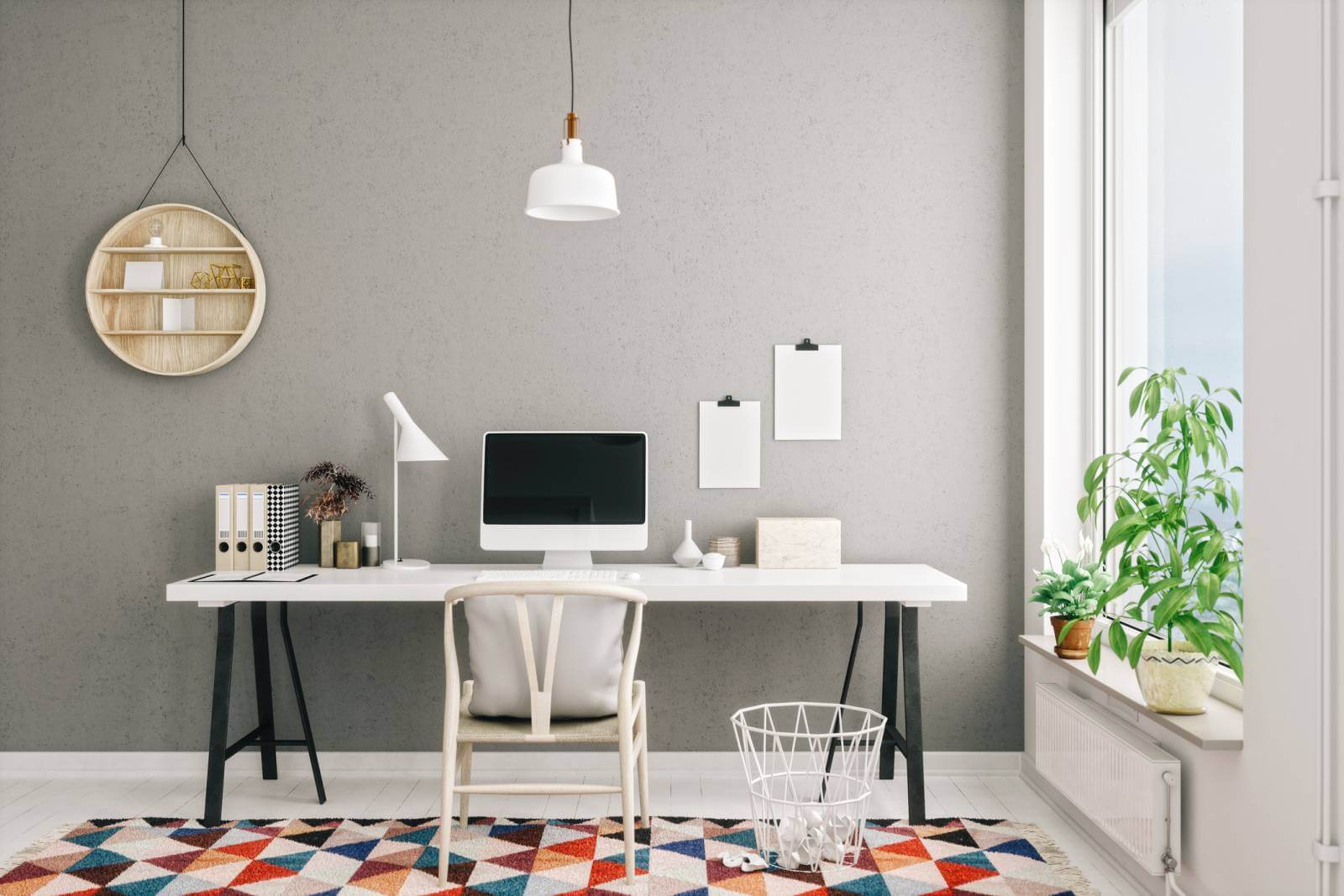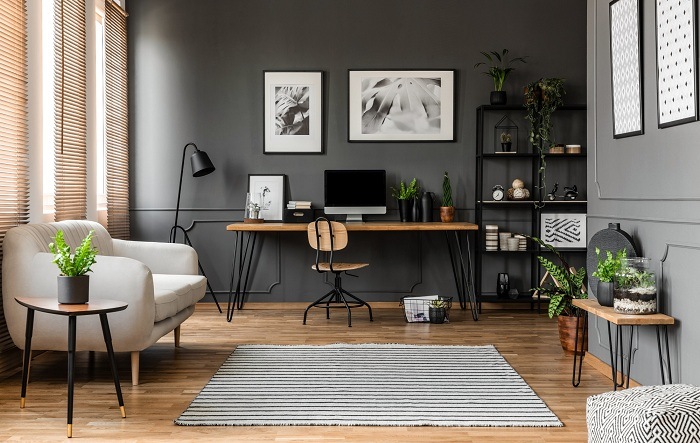HIGH POINT — The pandemic-induced spike in people working from home opened the flood gates for new home office furniture items. Companies that already had a presence in the segment ramped up their offerings, while newcomers entered the arena for the first time hoping to capitalize.
The segment has become expansive, and many customers enter a store not quite sure of what they want. That’s where retail sales associates come in.
RSAs are the crucial conduit for educating the customer, surveying their needs, and ensuring they walk out the door with a purchase.
What’s in the workspace?

Firstly, RSAs should understand what customers want from their home office.
“Selling home office requires understanding how the consumer works and where they’re planning to put their workspace,” said Marietta Willey, vice president, product development and merchandising for Parker House. “You need to determine if they want a desk to put behind the sofa, a writing desk for the primary bedroom or a complete setup for a dedicated home office.”
Longtime home office resource BDI says RSAs need to know exactly how a piece of furniture will benefit a customer.
“It’s important that sales associates have a thorough understanding of the furniture and its features, but they also need to understand the elements of an effective home office,” said BDI’s vice president of sales David Stewart.
“For example, many of our desks have easy-access panels for access to wire management,” Stewart added. “That’s a great feature, but the benefit is that the consumer can leave a jumble of wires, and the desk will cover for their sins. Having a satin-etched glass desktop is a cool feature, but the fact that it serves as a mousepad and remains free of fingerprints is the benefit.
“The best salespeople don’t just show what a product does, they explain how it benefits the user.”
Fan of features

But when it comes to features, how should associates be showing them off? Are standard features important to show first? Or are bells and whistles?
Both are important according to Martin Furniture, but neither are the most crucial. Vice President of Imports Pat Hayes said the company focuses on showing off quality and construction.
“Drawers are the first thing the customer reaches for when looking at a desk, that and running their hands over the top to feel the wood/finish,” he said. “How are the drawer glides, thickness and quality of the metal, ball bearing, full extension, etc.”
BDI’s Stewart thinks RSAs should not go too fast. It’s hard to know where exactly a customer’s frame of reference is.
“Demonstrating features is definitely important, but don’t just focus on the bells and whistles,” he said. “Technology has changed, and the engineering of office furniture has evolved with it. Purchasing office furniture is not something that one does everyday, so you never know what system you are replacing or what their frame of reference is.
“There are few ‘standard’ features in home office furniture,” Stewart added. “Much of the market has not graduated from standard box desks that do not account for today’s technology. So consumer’s expectations are surprisingly low. When we highlight the features of a BDI desk, consumers are often surprised to see the advances that have happened in the category.”
Key terms

“Although the word ‘ergonomics’ gets tossed around a lot, it is an important feature consumers look for, especially in their office furniture and seating,” said Stewart. “Showing how a chair will provide lumbar support and is adjustable to provide day-long comfort will matter.”
At Martin, the focus is more about construction.
“Fully assembled vs. KD (knockdown) or RTA (ready to assemble) can make a big difference in office furniture,” said Dee Maas, Martin’s executive vice president of retail sales. “The majority of what we build is fully assembled. Fully assembled wood furniture will be more durable over time.
“Details of the wood and hardware finish are also important to share with the customer. Knowing terms like hand-rubbed, rub-through, distressed, wire brushed, multi-step finish and being able to explain what the terms mean will give the RSA valuable tools that will help them close the sale,” she noted.
Maas also thinks sales associates should be aware of where the product is made, particularly if its domestic or imported from overseas.
“The term ’import’ can be used for any Asian country most likely, but some consumers may want to press the RSA further to see if Asia means China.”
Build on their research

“Consumers have a wealth of information at their fingertips, and they have likely spent time researching online to determine what they need before traveling to a retail store,” said Maas.
“The RSA needs to be knowledgeable about the product that they are selling to show the value that they can add to the transaction by pointing out details the consumer may have missed in their research.
“I wouldn’t say that it is hard to educate the customer, but it does require an investment in product knowledge.”
At BDI, Stewart noted that RSAs today are dealing with a much savvier and more educated customer. “Consumers often know a lot about a product they want before they ever step foot on a retail sales floor,” he said. “They have done their research, learned about features, compared brands and often have a sense of overall cost.”
Show and tell

With that said, showing how a product functions is still important.
“Consumers do a lot of research on their own and know what their needs are,” said Willey. “Therefore, home office products need to be well-displayed and functioning on the retail floor and retail sales associates should be familiar with the features and benefits of each piece. For example, most of our bookcases and library wall groups feature LED touch lighting; this needs to be demonstrated to be appreciated.”
BDI agrees, and Stewart noted it’s important to showcase a product just like it would be set up at home.
“Have the consumer interact with a memory keypad and create their own setting,” said Stewart. “Ask him or her to open the keyboard storage drawer to feel the lining and see the wire holes. Let them experience the motion of a soft close drawer or remove an easy-access panel. Allow them to sit in an office chair and test the various settings. Getting the consumer’s hands on these features is important.
“It is also so important that merchandisers at the retail level display office in the way it is meant to be used,” he said. “Insert file folders into filing cabinets, get some fun notepads for the empty drawers, invest in some books or computer props to fill the desk spaces, ensure that wiring is neat and organized. Let customers have a real-life view of how the furniture is meant to perform. Putting some energy into a store display is the best thing one can do.”
Overall, RSAs need to know that the category is important.
“More and more companies are adopting work from home strategies and will continue to see their employees move to a hybrid of working both in and out of the office post pandemic,” said Stewart. “New construction models are adding a home office back into floor plans which will increase the demand for home office furniture. RSAs should understand that this is an important category and take advantage of the opportunity to help their customer find an appropriate home office solution.”
Any questions please feel free to ask me through Andrew@sinotxj.com
Post time: Jun-16-2022


